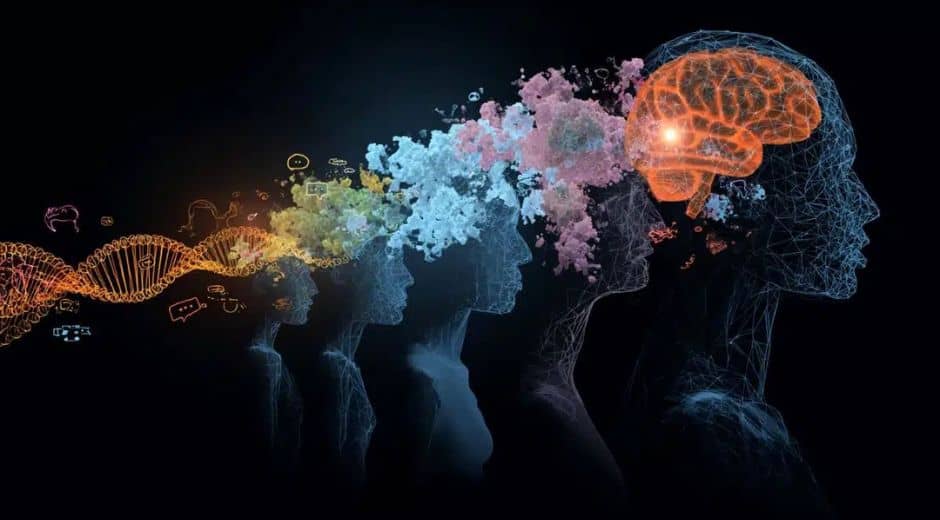Mindful Habits for Lasting Everyday Mental Balance
Mindful Habits for Lasting Everyday Mental Balance
In today’s fast-paced world, achieving mental balance can feel challenging. Work pressures, personal responsibilities, and constant digital distractions often leave the mind overwhelmed. Integrating simple Mindful Habits into your daily routine can help restore clarity, reduce stress, and cultivate a sense of equilibrium.
Awareness: The First Step
Awareness is the foundation of mental balance. Being conscious of your thoughts, emotions, and actions helps identify what disrupts your peace. Journaling, even for ten minutes a day, allows reflection and self-understanding. Recording challenges, achievements, or emotions helps recognize patterns and fosters emotional insight. Incorporating Mindful Habits like journaling creates space for reflection and strengthens self-awareness, essential for lasting mental balance.
The Power of Mindful Breathing
Breath is a powerful tool for calming the mind. Mindful breathing involves taking deep, intentional breaths several times a day, which reduces anxiety, improves concentration, and creates mental pauses. Pairing breathing exercises with gentle stretching or yoga enhances both mental and physical harmony. For more tips on mindfulness techniques, check out StyleRadarPoint, which offers resources to integrate these practices seamlessly into daily life.
Digital Detox and Mental Clarity
Constant exposure to screens—emails, social media, and news—can overload the mind. Implementing screen-free hours and managing social media usage reduces mental clutter and improves focus. Additionally, retreats and mindful escapes help recharge mental energy. Resources like TripBeyondTravel provide ideas for travel and experiences that foster calm and restore balance.
Movement and Physical Well-being
Exercise is a natural way to enhance mental clarity and stability. Whether it’s walking, cycling, or yoga, movement releases endorphins that elevate mood. When combined with Mindful Habits, such as observing bodily sensations or practicing gratitude during movement, exercise becomes a tool for mental resilience. Mindful walking in parks or nature allows you to ground your attention and cultivate inner calm.
Nutrition and Mindful Eating
Mindful eating supports both body and mind. Paying attention to your meals, savoring flavors, and listening to your body’s needs promotes mental clarity. Reducing sugar and caffeine while focusing on whole foods stabilizes energy and improves focus. Simple actions like a mindful breakfast or regular hydration reinforce Mindful Habits that support mental equilibrium.
Prioritizing Sleep
A consistent sleep schedule and relaxing bedtime routine are crucial for mental balance. Sleep allows emotional processing and memory consolidation. Limiting screen exposure, dimming lights, and practicing relaxation techniques before bed enhances sleep quality. By prioritizing rest, you strengthen your ability to face daily challenges with clarity and composure, making these essential Mindful Habits part of your routine.
Gratitude Practices
Gratitude shifts focus from stressors to appreciation. Reflecting on what you are thankful for—relationships, achievements, or personal growth—encourages positive mental states. Keeping a gratitude journal or simply noting three things each day helps integrate Mindful Habits that anchor the mind in positivity and balance.
Social Connections
Meaningful interactions with family, friends, and colleagues support emotional well-being. Engaging in active listening, sharing experiences, and offering support strengthens bonds and promotes mental stability. For practical advice on creating balanced routines, explore FocusMindFlow, which provides tips on sustaining harmonious daily living.
Goal-Setting with Mindfulness
Intentional goal-setting provides structure and focus. Breaking larger goals into smaller tasks makes them manageable and reduces stress. Approaching goals with awareness transforms them into opportunities for growth rather than pressure points, reinforcing Mindful Habits that support mental clarity.
Nature as a Balancing Force
Spending time in nature reduces stress and improves cognitive function. Observing natural rhythms, listening to sounds, or feeling sunlight reconnects you with the present. Outdoor practices nurture calm, focus, and equilibrium, complementing the Mindful Habits you integrate into daily lif
Expression
Creative outlets such as painting, music, writing, or crafting provide emotional release and mental clarity. Engaging in creative activities encourages flow states, where attention is fully absorbed, and distractions fade. Over time, these become meaningful Mindful Habits that support emotional and cognitive well-being.
Integrating Mindful Habits into Daily Life
Consistency is key to forming lasting habits. Start with small steps—five-minute breathing exercises, short gratitude reflections, or mindful walks. Gradually, these practices become routine, supporting mental equilibrium and resilience. The goal is presence and awareness, not perfection.
For additional guidance on mental wellness, lifestyle adjustments, and holistic practices, explore StyleRadarPoint and TripBeyondTravel. For insights on mindfulness, focus, and balanced living, visit FocusMindFlow. Complement your mental wellness routine with beauty and self-care tips from BeautyUpNest, which helps harmonize mind, body, and spirit.
By consistently applying Mindful Habits, you create a framework for mental clarity, emotional stability, and inner calm. Small, intentional actions—journaling, mindful breathing, nature walks, or gratitude practices—accumulate over time, providing a resilient foundation for lasting mental equilibrium.
Focus Flow Forward

Mental Momentum Tricks to Stay On Track
Mental Momentum Tricks to Stay On Track

Focus Ritual That Gets You Into Flow
Focus Ritual That Gets You Into Flow

Inner Discipline Habits for Long Term Growth
Inner Discipline Habits for Long Term Growth

Clarity Routine for Stronger Decisions
Clarity Routine for Stronger Decisions













